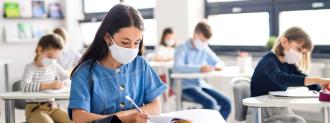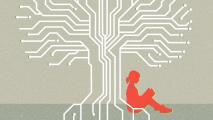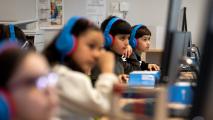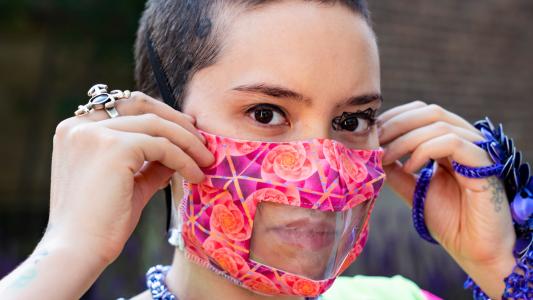Most public schools in the U.S. have been closed since March in response to the coronavirus pandemic, and some are now considering having students continue learning from home in the fall.
While there is a credible argument for keeping schools closed — after all, China, South Korea, and Israel recently had to shut down schools again after reopening due to outbreaks — not every public health expert agrees this is the best strategy.
Keeping kids home could impact their health in potentially even more damaging ways.
Some argue that a further delay in reopening schools could end up hurting children more than it helps them, wreaking havoc on their physical, mental, and social health.
Advocates for reopening schools don’t recommend that the process be rushed or that schools go right back to the status quo come September. What they do recommend, though, is that policymakers consider more than just the coronavirus itself when making decisions about the fall semester.
“The decision to close schools initially, and now to potentially keep them closed, isn’t, I think, taking the full measure of the impact this is going to have on children,” Dimitri Christakis, director of the Center for Child Health, Behavior, and Development at Seattle Children’s Hospital, told NPR. “Not just the short term, but the long term.”
The Visible Impact of School Closures
One of the main purposes of school closures has been to protect children’s physical health — we don’t want them to catch COVID-19 — but young people don’t seem particularly susceptible to infection.
The CDC reported in April that people under the age of 18 accounted for just 2% of COVID-19 cases for which age was known despite comprising 22% of the U.S. population. Minors also appear less likely than adults to experience any symptoms of COVID-19 or develop a severe case, according to that report.
The jury, however, is still out on to what degree children can transmit the virus. Although there’s not a lot of data about the virus transmission between children or between children and adults, many experts think the risk of children acting as superspreaders is low.
While reopening schools would likely increase kids’ chances of catching COVID-19, keeping them at home might negatively impact their physical health in other, potentially even more damaging, ways.
For one, schools serve as safe havens for many children who experience physical abuse at home — and the longer we delay reopening schools, the longer those kids are stuck with their abusers and away from the teachers and counselors that might otherwise report the abuse.
Furthermore, since the school closures began, food insecurity in households with children has also spiked. This is in part due to the loss of school-provided meals and also working parents’ need to spend money that would’ve gone toward food on alternative childcare.
Reopening schools could ensure kids are getting at least one meal a day and alleviate that financial burden on parents.
The Invisible Impact of School Closures
Even if school closures don’t put children at risk of physical harm, it can affect their mental and social health.
On June 1, the Journal of the American Academy of Child and Adolescent Psychiatry published an analysis of 60 pre-existing, peer-reviewed studies relating to people ages 4 to 21 and such topics as loneliness and mental health.
Connecting with other kids in real time and space is immensely important for young children.
Dimitri Christakis
That analysis found an association between loneliness and depression in young people, and it suggests that the longer we wait before reopening schools, the more severely children’s mental health will be affected.
“There is evidence that it’s the duration of loneliness as opposed to the intensity which seems to have the biggest impact on depression rates in young people,” lead researcher Maria Loades, a clinical psychologist at the University of Bath, said in a press release. “This means that returning to some degree of normality as soon as possible is of course important.”
According to Christakis, keeping kids out of school for too long could also stifle their social development.
“The social-emotional needs of children to connect with other children in real time and space, whether it’s for physical activity, unstructured play or structured play, this is immensely important for young children in particular,” he said.
Creative Options for Reopening Schools
Not all of the schools that have already reopened experienced coronavirus outbreaks — though the return to classes hasn’t been without incident, many schools in Europe and Singapore seem to be doing well overall.
In Denmark, groups of 12 students are moving as a unit, interacting with only one teacher and no other children. One school in the Netherlands has installed plastic shields around students’ desks. The success these schools have had in returning students to classrooms could serve as models for schools reopening in the U.S. this fall.
We’d love to hear from you! If you have a comment about this article or if you have a tip for a future Freethink story, please email us at [email protected].






